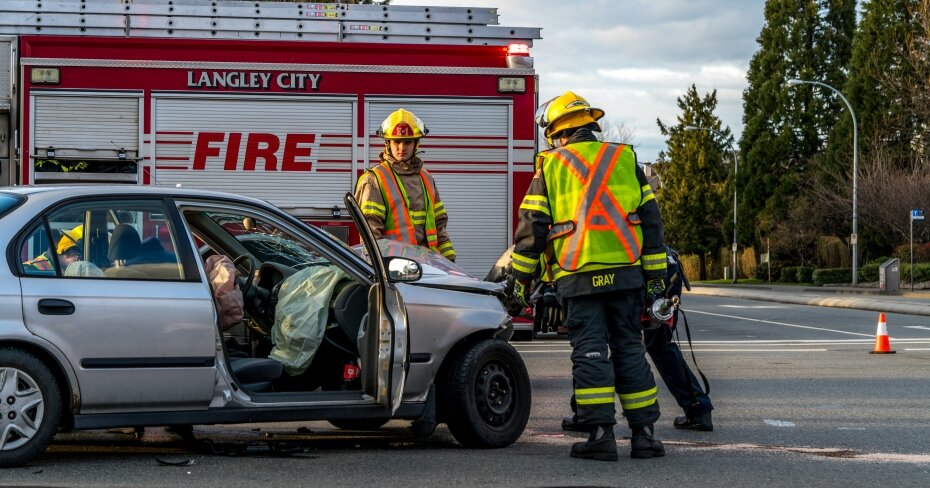What happens if you get into an accident outside your province?
By: Jessica Mach on July 27, 2023
This article has been updated from a previous version
Here’s one horror story that we’ve all heard: a Canadian travels abroad for vacation and has an unfortunate accident or sustains an injury that requires a hospital visit. They then file an insurance claim that’s ultimately rejected and, as a result, get stuck with unfathomably high medical bills.
The issue in those sorts of situations is always travel insurance — either a lack of it, or a policy with terms that restrict or exclude the exact situation at hand. And when it comes to travel insurance, there are other types of situations that can also be confusing to navigate.
What happens if you decide to take a road trip and get into a car accident outside of your province? What if the accident occurs in Alberta, or even the U.S., but you hold an Ontario auto insurance policy? Will your insurance provider accept your claims?
Here’s what your auto insurance policy will and will not cover if you get into an accident outside of your province.
Read more: Taking a trip to another province? You might want to get travel insurance
Can you file a claim for an out-of-province accident?
Auto insurance is provincially regulated, which means that the rules regarding out-of-province claims will vary from province to province. As a general rule of thumb and before heading out on a road trip, you should always check with your insurance provider exactly what, and how much you’re covered for and whether you’ll need to buy extra coverage.
For Ontario residents, there’s some good news: even though the province has a private insurance market, the provincial government has minimum coverage requirements that all drivers are required to have. The Ontario Automobile Owner’s Policy, the insurance that most Ontario drivers have, provides coverage for “incidents occurring in Canada [and] the United States of America.”
Under Ontario law, all auto insurance policies must provide:
Liability coverage. This covers the cost of settling a legal claim if someone else is injured or killed, or if their property is damaged).
Accident benefits. This provides benefits if you are injured in an accident, regardless of who’s at fault. These benefits include supplementary medical care, a tax-free income benefit, an allowance if you can’t work, an allowance if a caregiver is injured, and funeral expenses.
Uninsured automobile coverage. This covers damage to your car if you’re hit by an uninsured driver; it also provides coverage if you’re a victim of a hit-and-run scenario.
Direct Compensation - Property Damage (DC-PD). In Ontario, this will cover you for any damage to your car or property inside it if another driver is responsible for the accident.
B.C. drivers also have similar coverage when they decide to take a road trip out-of- province. The Insurance Corporation of British Columbia (ICBC)’s Autoplan, which is the minimum auto insurance plan that is required of all B.C. drivers, provides coverage everywhere in Canada and the U.S., including Hawaii and Alaska.
In most cases, your insurance claim will be governed by the laws of the jurisdiction where your accident happened. This means that if your accident takes place in Vermont, any court proceedings would also have to happen in-state.
Do you need to buy additional coverage?
This depends on the circumstances of your trip.
If you’re driving in the U.S., it’s important to note that many states have lower minimum coverage thresholds than you’ll see in Canada. This means that if you get into an accident with an American driver, they may not have enough insurance coverage to pay you for damages.
This is where extra coverage will come in handy. To avoid unexpected expenses, talk to your broker or insurance provider about short-term, add-on options before you leave for your trip.
Save 23% on average on car insurance
Compare 50+ quotes from Canadian providers in 3 minutes.

.jpg?itok=88nBkwga)
.jpg?itok=W5fSKczJ)